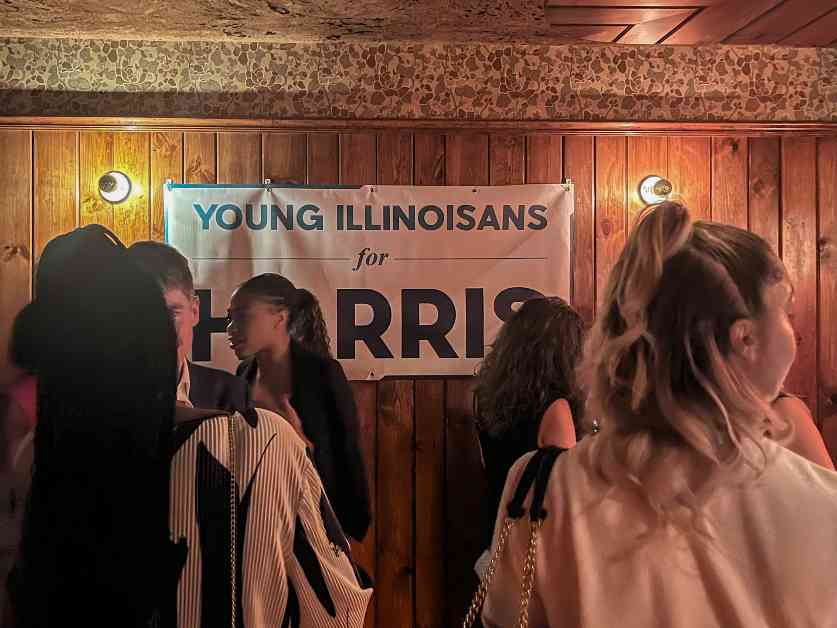Young Democrats’ Perspectives on Higher Education: Insights and Opinions
At the recent Democratic National Convention, conversations with left-leaning students shed light on their biggest concerns with higher education: high tuition costs and access. This differed from the top issue highlighted by young conservatives at the previous Republican National Convention, which was centered around free speech. However, amidst nationwide crackdowns on campus protests, some young Democrats expressed similar worries as their Republican counterparts. They emphasized the importance of preserving academic freedom and creating a space for mutual understanding and respect on campuses across the nation.
When discussing whether educational institutions are fulfilling their purpose in society and the role of diversity in college curriculum, conservative students raised concerns about diversity, equity, and inclusion (DEI) initiatives impeding equal opportunity in the classroom and workforce. On the other hand, liberal students focused on addressing opportunity gaps in marginalized communities.
During interviews with students, their perspectives on various aspects of higher education were explored. Here are some of the questions posed and their responses:
How did you first get into politics?
Michael Clausen, a rising senior at Loyola University Chicago, shared his family’s long history with the Democratic Party, dating back to the New Deal era. He emphasized the importance of continuing the legacy of caring for others through policies and politics. On the other hand, Sean Bridge, a rising senior at the University of Cincinnati, expressed his support for the Democratic Party as a means of opposing Republican policies that threatened his access to hormone replacement therapies.
When deciding which college to attend, what were your criteria? Did your political beliefs play a role?
Morgan Vanderlaan, a sophomore at the University of Florida in Gainesville, highlighted the impact of financial considerations on her college choice, citing the affordability of in-state public universities as a key factor. Alyssa Manthi, a rising junior at the University of Chicago, explained that she avoided conservative-leaning schools to seek a more politically aligned community.
What is the purpose of an American higher education? Are institutions achieving that purpose right now?
Arnold Brown, a third-year student at DePaul University’s College of Law in Chicago, emphasized the importance of passing down knowledge to the general public and advocating for a focus on community impact. Sandra Ukah, a sophomore at the University of Florida in Gainesville, stressed the need for diverse representation in elite spaces to reflect the broader population. Meghana Halbe, a rising junior at the University of Chicago, called for a greater emphasis on civic engagement in college education.
Where is your college failing?
Sean Bridge expressed concerns about the growing financial burden on students and the impact of high costs on access to higher education. Michael Clausen highlighted the competitive nature of college admissions, which he felt disadvantaged students from marginalized communities. Blake Robinson, a student at Georgia Southern University, pointed out the underfunding of public Historically Black Colleges and Universities (HBCUs) as a significant issue. Sigalit Shure, a rising junior at Fordham University, raised concerns about inadequate facilities and resources on campus.
What is the value of being exposed to a diverse set of curriculum?
Victoria Hinckley, a student at the University of South Florida Tampa, emphasized the importance of diverse perspectives and experiences in preparing students for future interactions and challenges. Morgan Vanderlaan called for a more comprehensive teaching of history to prevent the repetition of past mistakes. Blake Robinson highlighted the enriching educational experience that comes from exposure to diverse viewpoints.
Can you have productive conversations with people who have different beliefs on your campus? Have your experiences in college challenged your own beliefs?
Angel Mosqueda, a rising senior at Elmhurst University, emphasized the importance of understanding and engaging with differing viewpoints to facilitate productive conversations. Emilie Tueting, a rising junior at Northwestern University, acknowledged challenges in communication due to differing sources of information. Alyssa Manthi shared her experiences of personal growth through engaging with individuals holding opposing beliefs. Sigalit Shure reflected on how interactions outside her bubble challenged her preconceived notions. Arnold Brown affirmed his commitment to his beliefs while acknowledging the value of listening to diverse perspectives.
In conclusion, the perspectives of young Democrats on higher education reflect a diverse range of concerns and priorities. From addressing affordability and access to advocating for a more inclusive and equitable educational environment, these students are actively engaging with the challenges and opportunities present in the current higher education landscape. As they navigate their college experiences and political engagements, their voices contribute to the ongoing conversations about the future of higher education in America.

